Research: Exploring the World through Inquiry
Research is the systematic process of investigating, collecting, analyzing, and interpreting information to answer questions, solve problems, or gain new understanding. It is a critical skill in the scientific method and is used across various fields of study.
Types of Research
There are two main types of research:
- Qualitative Research: This type of research focuses on understanding human behavior, beliefs, and experiences through methods such as interviews, observations, and case studies.
- Quantitative Research: Quantitative research involves the collection and analysis of numerical data to identify patterns, relationships, and trends. This is often done through surveys, experiments, and statistical analysis.
The Research Process
The research process typically involves the following key steps:
- Identifying the Research Question: This step involves formulating a clear and specific question that the research aims to address.
- Reviewing Existing Literature: Before conducting new research, it's important to review existing literature and studies to understand what is already known about the topic.
- Designing the Study: Researchers must carefully plan the methods and procedures they will use to collect data, ensuring that the study is ethical and reliable.
- Collecting Data: This step involves gathering information through various means, such as surveys, experiments, or observations.
- Analyzing Data: Once the data is collected, researchers use statistical or qualitative analysis techniques to derive meaningful insights.
- Interpreting Results: Researchers interpret the findings of their study and draw conclusions based on the analysis.
- Communicating Findings: Finally, researchers communicate their findings through research papers, presentations, or other means, contributing to the collective knowledge in their field.
Study Guide for Research
Here are some key concepts and skills to focus on when studying research:
- Understanding the differences between qualitative and quantitative research.
- Recognizing the importance of formulating clear research questions.
- Exploring ethical considerations in research, such as informed consent and confidentiality.
- Practicing data collection techniques, such as surveys, interviews, and experimental methods.
- Learning data analysis methods, including statistical analysis and qualitative coding.
- Understanding the significance of peer review and the publication of research findings.
By mastering these concepts and skills, you will develop a solid foundation in research and be well-prepared to engage in scientific inquiry and critical analysis.
.◂Science Worksheets and Study Guides Sixth Grade. Weather patterns
Study Guide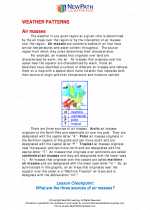 Weather patterns
Weather patterns  Worksheet/Answer key
Worksheet/Answer key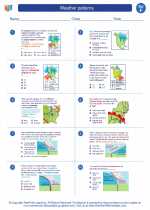 Weather patterns
Weather patterns  Worksheet/Answer key
Worksheet/Answer key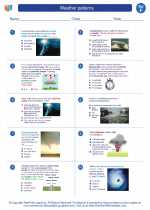 Weather patterns
Weather patterns  Worksheet/Answer key
Worksheet/Answer key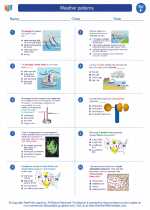 Weather patterns
Weather patterns  Vocabulary/Answer key
Vocabulary/Answer key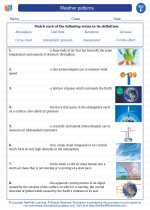 Weather patterns
Weather patterns  Vocabulary/Answer key
Vocabulary/Answer key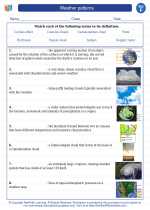 Weather patterns
Weather patterns  Vocabulary/Answer key
Vocabulary/Answer key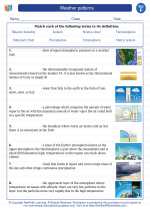 Weather patterns
Weather patterns  Vocabulary/Answer key
Vocabulary/Answer key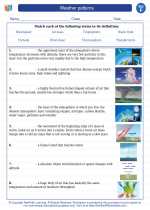 Weather patterns
Weather patterns 

 Worksheet/Answer key
Worksheet/Answer key
 Worksheet/Answer key
Worksheet/Answer key
 Worksheet/Answer key
Worksheet/Answer key
 Vocabulary/Answer key
Vocabulary/Answer key
 Vocabulary/Answer key
Vocabulary/Answer key
 Vocabulary/Answer key
Vocabulary/Answer key
 Vocabulary/Answer key
Vocabulary/Answer key

The resources above cover the following skills:
EARTH AND SPACE SCIENCE
Earth’s Systems
Integrate qualitative scientific and technical information (e.g., weather maps; diagrams; other visualizations, including radar and computer simulations) to support the claim that motions and complex interactions of air masses result in changes in weather conditions.